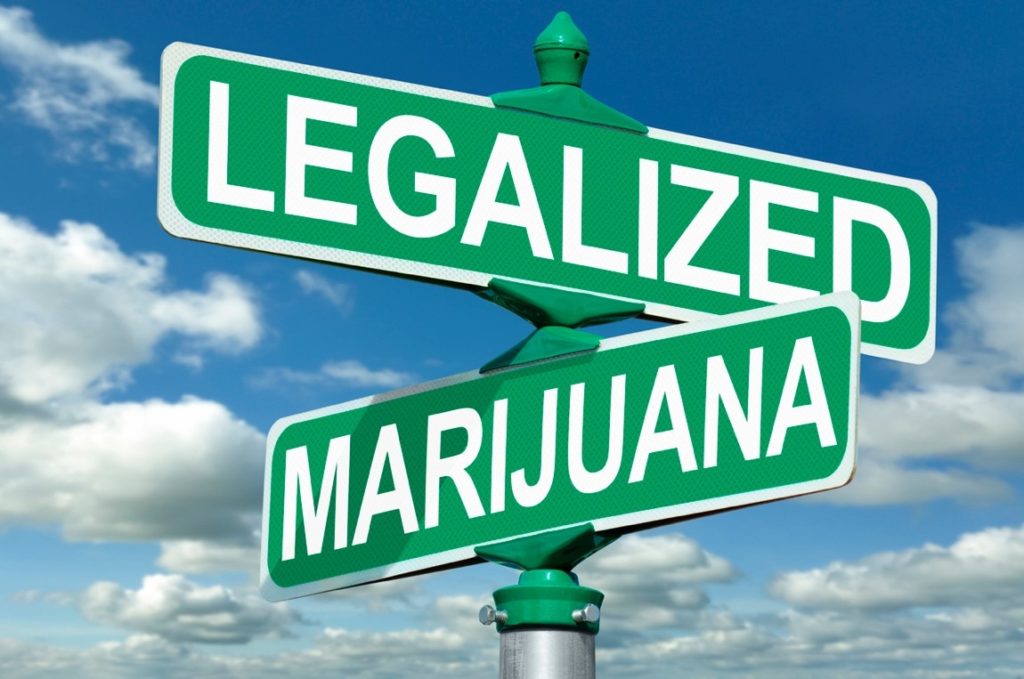When it comes to marijuana and its legalization, that immortal sage of pop culture from the ‘60s said it best…
“The times they are a-changin” Bob Dylan, 1963
Certainly, public opinion about cannabis has changed dramatically over the last thirty years. After decades in which marijuana was generally perceived as an evil scourge, surveys now show most people feel that the drug is relatively harmless (if not totally risk-free). Gallup and the Pew Research Center’s most recent polls show 66% of Americans now support legalization.
But, here’s the crazy part…
The federal government still classifies marijuana as a Schedule I narcotic, making it illegal for possession, sale, or consumption.
Despite the federal ban, ten states, the District of Columbia, and recently Canada, have now approved recreational use of marijuana. Thirty-three states have legalized medical marijuana use under certain circumstances, while other states have decriminalized the possession of small amounts.
The changing laws regarding marijuana use are having a ripple effect in many industries. The Trucking Industry is no different. While it does represent new freight carrying opportunities, it also poses new drug testing challenges.
To toke or NOT to toke?
Marijuana users have to consider the ramifications associated with a career in trucking. Consider the case of Colorado, where marijuana is legal. Drivers have to understand that CDL drug testing requirements are mandated by the feds (who don’t even approve it for medical use). More drivers there are now testing positive for the substance. This exacerbates the massive truck driver shortage.
And, there’s the ripple effect in the trucking schools and driver schools where failure rates on drug tests are as high as 60% in some areas. Consequently, many are now asking that potential truck drivers not even apply for truck driver positions if they’re going to test positive for marijuana.
Like other trucking companies, DriverSource is impacted by this hodgepodge of legislation passed regarding marijuana. Three areas affected are cited below:
- It jeopardizes the driver’s career.
Truck driving is an inherently dangerous job, and the effects of marijuana use are not as clear-cut as other drugs like alcohol. Trucking companies are adhering to “zero tolerance” policies, regardless of marijuana’s legal status in their local state. Drivers must realize that even a medical marijuana card does not supersede federal law (which outlaws the consumption of THC in any form) followed by most trucking companies.
Until the federal government reclassifies marijuana and the Department of Transportation relaxes its stance, it is extremely unwise for any truck driver to consume marijuana, either recreational or for medical reasons.
- Legalization is driving up Company Costs
Drug testing costs money. Adhering to “zero tolerance” policies requires more robust and costly testing methods to ensure drivers are abiding by the rules. Drivers testing positive for THC can present a legal nightmare for trucking companies, particularly in the event of an accident.
The ripple effect is that this creates other expenses, namely costs associated with firing positive-testing drivers and hiring and training new drivers to take their place.
- The mishmash of State vs Federal laws is causing confusion
While laws surrounding marijuana use seem clear and simple at the federal level (the DOT expects all drivers not to consume THC), things are not so clear at the driver level. Drivers often travel through many states during the course of their work. They may feel they are free to enter a legal state and smoke marijuana. Or, they may not realize other types of consumption, such as eating pot-laced confections, can lead to a failed drug test and termination.
Truckers residing in states that have legalized marijuana use must still adhere to DOT guidelines which prohibit the use of THC in any form by any safety-sensitive employee. As an example, a truck driver in California may legally consume marijuana in his state, but doing so puts his job in jeopardy due to its federal classification as a narcotic.
By Bill D for DriverSource



